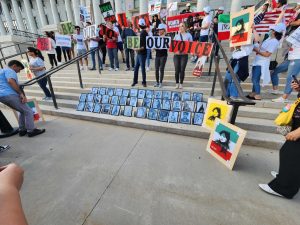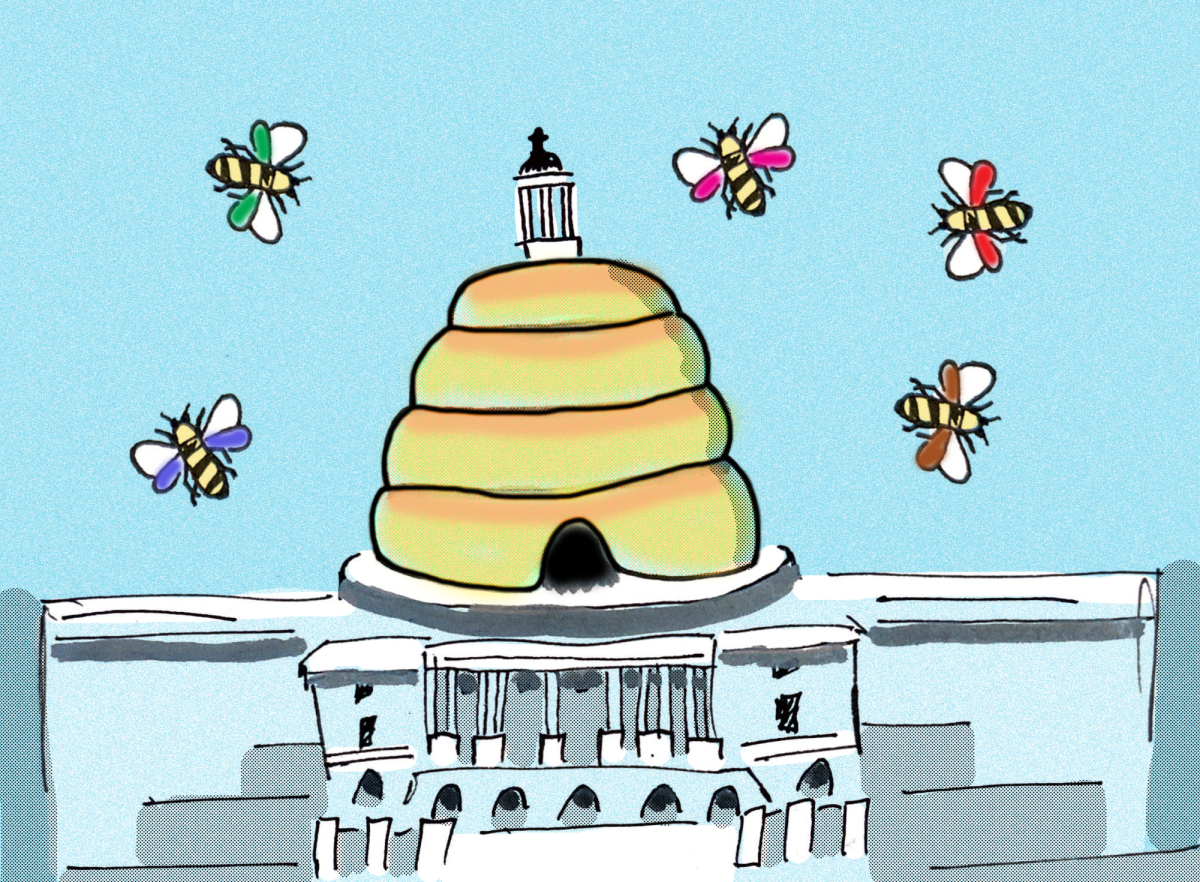Biden Administration Finalizes Rule to Make DACA a Federal Regulation
Dream Center for DACA Students at the University of Utah in Salt Lake City on Sept. 19, 2022. (Photo by Andrea Oltra | The Daily Utah Chronicle)
October 5, 2022
The Biden administration recently finalized a rule to codify Deferred Action for Childhood Arrivals (DACA) into federal regulation, replacing the original 2012 memorandum. However, it remains in legal limbo.
The Department of Homeland Security’s final rule is effective on Oct. 31 and will preserve and fortify DACA.
On Aug. 24, President Biden released a statement about strengthening protections for Dreamers, a term for undocumented students in the U.S.
“We are fulfilling our commitment to preserve and strengthen DACA by finalizing a rule that will reinforce protections, like work authorization, that allow Dreamers to live more freely and to invest in their communities more fully,” the statement read.
The final rule codifies the existing policy with some changes and replaces the 2012 Napolitano memorandum. Ultimately, it maintains existing criteria to be considered for DACA status, it keeps the existing process for DACA requestors to seek work authorization and it affirms the policy that DACA is not lawful status.
Raquel Cetz, interim director of the University of Utah Dream Center said having the program be in such consistent limbo makes the codification of DACA very important.
“It definitely will impact the lives of more than 800,000 DACA beneficiaries across the United States,” Cetz said
Program Coordinator for the Dream Center Salvador Oregon-Torres said DACA does not solve every issue, but this codification better protects DACA from legal challenges.
“The fact that it’s codified [means] … it’s going to be harder for it to be taken to court and for it to be taken away,”
According to a fact sheet from the American Immigration Council, DACA was a policy implemented by former Secretary of Homeland Security Janet Napolitano on June 15, 2012, that provided temporary relief from deportation and work authorization to certain young undocumented immigrants.
There is an injunction from the U.S. District Court for the Southern District of Texas which prohibits DHS from granting initial DACA requests and related employment authorization, according to the DHS. However, that injunction has been partially stayed and DHS can now grant DACA renewal requests under the new rule.
According to U.S. Citizenship and Immigration Services, the U.S. District Court for the Southern District of Texas on July 16, 2021, held that the DACA policy is illegal. This created a permanent injunction, allowing the DHS to accept the filing for initial DACA applications after July 16 but prohibiting the DHS from granting those DACA requests. The stayed injunction allows existing DACA recipients to keep their status and request renewals.
Oregon-Torres said that generally announcements about DACA seem to be good at the time they’re made, but then a couple of months later they’re reviewed by another court case.
“It’s kind of like a roller coaster of emotions,” he said
Cetz said the codification of DACA may finally allow students to move forward with pending cases or maybe even apply for DACA for the first time.
“I think that would be life-changing to so many of our students that are currently trying to figure out how they’re going to pay for their school,” Cetz said.
Liz Chavez, U senior studying political science with an emphasis in international relations, said the codification of DACA should have been implemented when it first started.
“I think it’s very important to make sure that students and children … have that sense of security,” she said.
The U’s leadership shared a statement in August, declaring their continued support for DACA students while legal decisions are still being made by promising to “gather the resources necessary to ensure these students are able to continue their education.”
“We will continue to do everything in our power to help and protect our students,” the statement reads. “We will evaluate both the White House’s administrative rules and any court rulings to determine whether they will have an impact on existing Utah law. As the legal landscape surrounding DACA changes, we will share what we learn with those impacted and offer resources in support.”
In the statement, the leaders said the U’s Dream Center will continue to work to provide support from college access to graduation and beyond to undocumented students and mixed-status families.
“The goal is to ensure that all people feel safe, really accessing resources, having support set up across all of the different institutions of higher education in Utah,” Cetz said.
Students with questions about the status of DACA and how to pursue higher education and scholarship opportunities can visit the U’s Dream Center. More on-campus resources include University Counseling Services, Safe UT, Equity, Diversity, and Inclusion embedded counseling and DACA renewal partnership and collaboration.

















